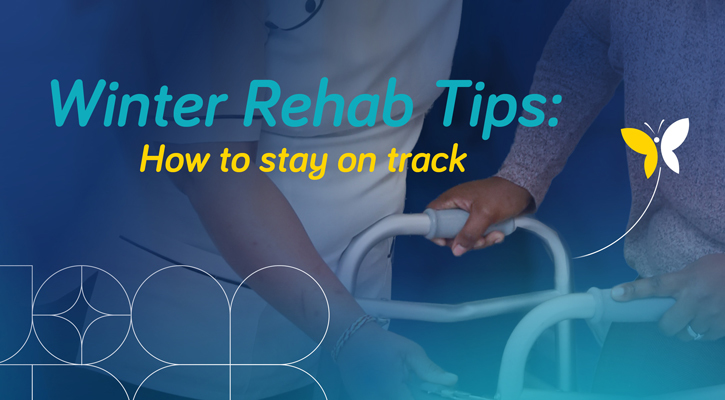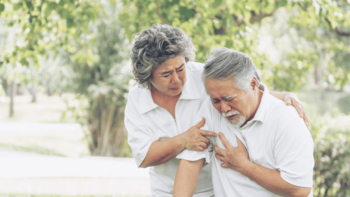
Winter rehab tips: How to stay on track
When winter’s icy mornings set in, even getting out of bed can feel like a battle — especially if you’re recovering from major surgery or undergoing physical rehabilitation.
Nurture Health’s medical professionals see clear seasonal changes, including stiffer joints, more pain, slower progress and a dip in motivation but know how to tackle this and keep the recovery journey on track.
Physiotherapists at Cape View and Vereeniging – two of our national network of physical rehabilitation hospitals – share tips on how to cope with the cold.
Why winter hits harder in recovery
It’s not just about the weather, although icy air and damp mornings do not help.
“Orthopaedic patients complain that newly inserted plates and screws cause increased pain during colder temperatures,” report our physiotherapists.
Many patients, especially those with arthritis, osteoporosis, or recovering from surgery or a stroke, find winter worsens pain, fatigue and stiffness.
Some even skip morning routines like showering or walking to avoid cold floors. Others spend more time in bed, leading to muscle deconditioning and less functional progress.
The medical treatment team notes that respiratory illnesses also spike in winter, particularly in frail patients, and breathing becomes harder. With their energy sapped, they do not find it as easy to take part in much-needed therapy.
The cold also can affect mood and this matters because recovery depends not only on physical movement but also on mental strength.
Read more: Emotional wellness: how to manage your mindset
How we keep patients moving
To combat these seasonal slowdowns, our healthcare specialists adjust how and when they work with patients.
When it comes to physiotherapy, warm-up time becomes extra important. Heated therapy rooms, soft tissue massage and dynamic stretching help to warm up cold muscles and reduce the risk of injury.
Stroke recovery patients are sometimes encouraged to shower before sessions. Indoor-friendly routines, such as passive cycling or mobility exercises, are tailored to each patient’s level.
Our rehabilitation support staff are also key: helping frail patients get dressed warmly, prepping them for sessions, or doing light exercise with them earlier in the day.
Importantly, safety stays front of mind throughout the healthcare journey. The physiotherapists at Cape View, for example, warn against hot water bottles in hospital settings (they can cause burns), and opt for microwaveable beanbags instead. And socks on tiles at home are a no-no, with non-slip slippers far safer.
Read more: Keep moving to keep healing
What families need to know
Loved ones play a critical role in a patient’s winter rehabilitation journey. First, motivation matters. Daily encouragement from family helps keep patients engaged. If your loved one seems more down than usual, it may be the cold, but don’t ignore it.
Second, safety at home is essential. Winter layers can increase fall risk: socks (as mentioned above), loose carpets, slippery mats and poor lighting all become hazards.
Make sure grab rails, ramps and rehabilitation equipment are ready before discharge and, just as important, know how to use them properly.
Read more: How to prepare your home before your loved one comes home from rehab
Winter recovery is possible
Yes, winter is harder. But with planning, warm encouragement and a bit of extra TLC, your loved one’s physical rehabilitation does not need to go into hibernation. Recovery is a year-round commitment and Nurture Health is with you every step, every season.





